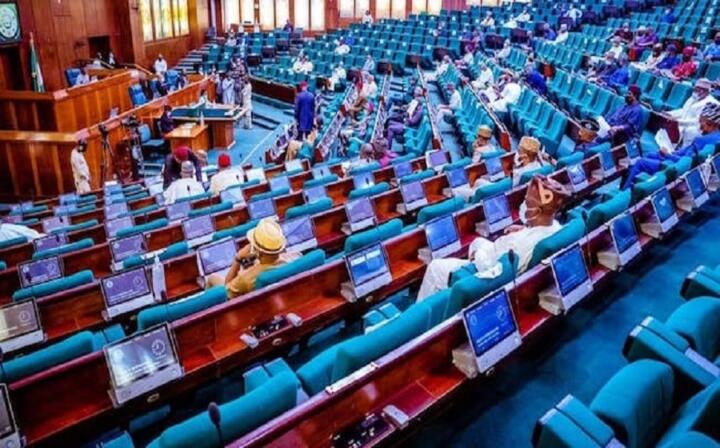Nigeria’s oil and gas sector has received a significant boost, as lawmakers disclosed that the Petroleum Industry Act (PIA) has attracted over $16 billion in investment commitments within two years of its enactment. This development marks a major turnaround for the nation’s energy industry, which had previously struggled to draw substantial foreign capital due to regulatory uncertainty and infrastructural challenges.
The House of Representatives made the announcement following a briefing with key stakeholders in the oil and gas industry, including officials from the Nigerian Upstream Petroleum Regulatory Commission (NUPRC) and the Ministry of Petroleum Resources. According to lawmakers, the implementation of the PIA has redefined Nigeria’s investment climate, providing clarity, transparency, and predictability for international and local investors alike.

They attributed the surge in investments to specific reforms introduced under the Act, including improved fiscal terms, streamlined licensing processes, and stronger legal frameworks for asset management. These have reportedly led to increased confidence among exploration and production companies, which have now resumed large-scale projects previously stalled due to policy ambiguity.
Several major oil corporations are already engaging in billion-dollar investments, particularly in Nigeria’s deep offshore terrain. Projects such as the development of Bonga North and other deepwater fields have gained momentum, with foreign partners committing capital to both exploration and production phases. These deals alone account for a substantial portion of the $16 billion investment total, according to government figures.
Lawmakers noted that the reform has created an enabling environment that allows Nigeria to compete more effectively with other oil-producing nations. Before the PIA was enacted in 2021, Nigeria had fallen behind in attracting oil investments, with many multinational firms diverting funds to countries with clearer and more favorable regulatory conditions. The passage of the PIA reversed that trend, with investors now reassessing Nigeria’s upstream potential in light of the new policy direction.
In addition to oil projects, Nigeria’s gas sector has also witnessed increased attention. Under the government’s “Decade of Gas” initiative, gas investments have become a focal point for energy diversification and transition. Industry reports indicate that several infrastructure projects, including gas pipelines, gas-to-power plants, and liquefied natural gas facilities, have received funding as a result of the PIA’s incentivized framework.
The Nigerian Upstream Petroleum Regulatory Commission, which oversees the implementation of upstream policies, confirmed that a number of licensing rounds have been successfully completed since the Act came into force. The Commission said it has observed a significant uptick in bid participation, with both local and foreign companies showing renewed interest in Nigeria’s hydrocarbon assets.
According to NUPRC officials, these investments have already started yielding positive results. Crude oil production, which hovered around 1.4 million barrels per day at the beginning of 2024, has increased to approximately 1.7 million barrels per day. The Commission aims to reach 2.5 million barrels per day by 2026, a target it believes is realistic given the current level of capital inflows and field development activities.
Government officials highlighted that the PIA’s success is further supported by recent executive orders aimed at improving investment appeal. These orders include incentives for companies that invest in deepwater projects and provisions that reduce approval delays. These policy enhancements have helped fast-track project executions and restore investor trust in the Nigerian regulatory system.
Despite these gains, lawmakers emphasized the need to consolidate progress and ensure that the benefits of these investments are widely distributed. They called for more robust local content policies, insisting that host communities must not be left behind in the development of oil-rich regions. There were also calls for increased environmental monitoring to ensure that the new projects adhere to global best practices in sustainability and safety.
Industry analysts agree that the $16 billion milestone is a testament to Nigeria’s improved investment framework. However, they caution that political stability, infrastructure development, and consistent policy enforcement will be crucial in maintaining investor confidence. They noted that while initial inflows are promising, the challenge now lies in ensuring the successful completion of projects and the efficient management of revenues generated.
Local communities and civil society groups have welcomed the renewed activity in the oil and gas sector but have urged transparency and accountability in the disbursement and management of funds. They stressed that revenues from these investments should be directed toward national development, including education, healthcare, and infrastructure.
The House of Representatives has pledged to intensify oversight of the implementation of the PIA and related investment projects. Lawmakers say their goal is to ensure that Nigeria does not just attract foreign capital, but also translates it into tangible development outcomes for the population.
As Nigeria works to reposition itself as a key player in the global energy space, the sustained implementation of the PIA and continued collaboration between government, industry, and host communities will be vital. The $16 billion in investments marks a significant step forward, but it is only the beginning of what could be a transformative era for Nigeria’s oil and gas sector.
Support InfoStride News' Credible Journalism: Only credible journalism can guarantee a fair, accountable and transparent society, including democracy and government. It involves a lot of efforts and money. We need your support. Click here to Donate
